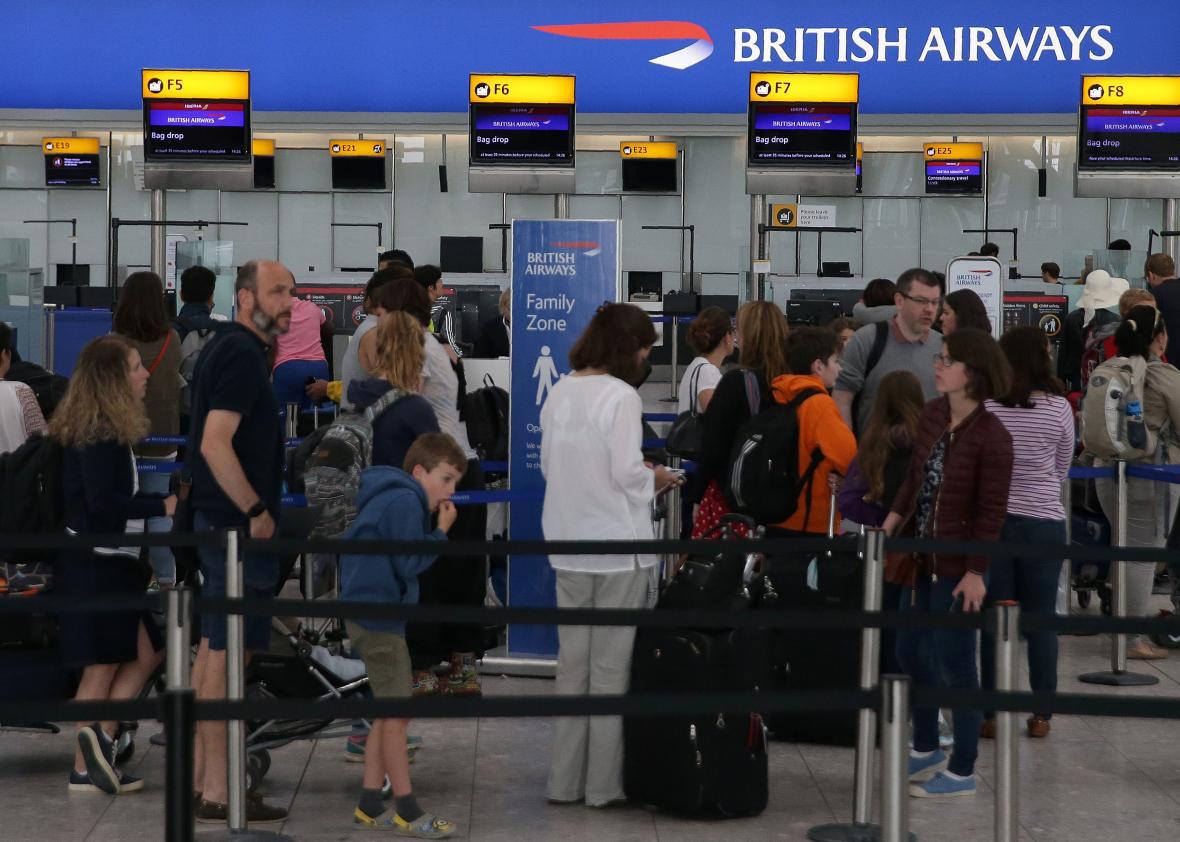Capping of a frenzied week of populism that began with a $1.5 trillion corporate tax cut, the Trump administration announced on Thursday it would abandon an Obama-era proposed rule to make airlines more clearly disclose baggage fees to consumers at the point of sale.
It’s the latest sign that the Department of Transportation is taking its policy cues directly from the airline industry. Trump’s DOT had also failed to issue regulations required by a 2016 law to force airlines to issue baggage fee refunds for delayed bags and to seat parents alongside their children for no extra charge. Separately, the administration has favored an industry-backed proposal to privatize air traffic control.
The DOT will scuttle the January rule on the grounds that it was “unnecessary” and would “require airlines to incur significant costs.” That particular pleasure will instead be reserved for passengers. Airlines collected more than $7 billion in baggage and change fees in 2016. It’s a comical cave-in to the airline lobby from a president who campaigned on draining the swamp, though that strain of hypocrisy no longer seems so remarkable.
It’s also a cautionary tale about how regulating online commerce requires extra diligence from lawmakers. Baggage fees took off around 2008, and the Obama administration went after the practice with a law that took effect in 2012. But that regulation didn’t cover third-party sale sites like Expedia, rendering their price-sorting algorithms inaccurate. What’s more, as the LA Times observed in January, some airlines responded on their own sites by burying baggage fees away from ticket prices.
The 2012 law requires that a carrier “clearly and prominently disclose on the first screen in which the agent or carrier offers a fare quotation for a specific itinerary selected by a consumer that additional airline fees for baggage may apply and where consumers can see these baggage fees.” (Italics mine.) It mandates that carriers specify bag fees on e-ticket confirmations but allows them to do so through a hyperlink. And that’s a big, new-tab-sized loophole. In practice, the regulation has done little to show people how much their tickets really cost—which is why the administration tried to shore it up in January.
Instead, it looks like the status quo will persist. Through its trade group Airlines for America, the industry praised transportation head Elaine Chao for “recognizing that airlines, like all other businesses, need the freedom to determine which third-parties they do business with and how best to market, display and sell their products.”
But that’s not a very good analogy. The marketing, display, and sale of products is extensively regulated across every industry, not least one whose enigmatic pricing tactics and general indispensability has always kept it heavily supervised.
